Ubisoft are moving away from ‘finite experiences’ but let’s not abandon a search for meaning, for the sedative of entertainment
If the future is 7/10 games with no conclusion, then it might be game over for some of the uncompromising tales we've held most dear
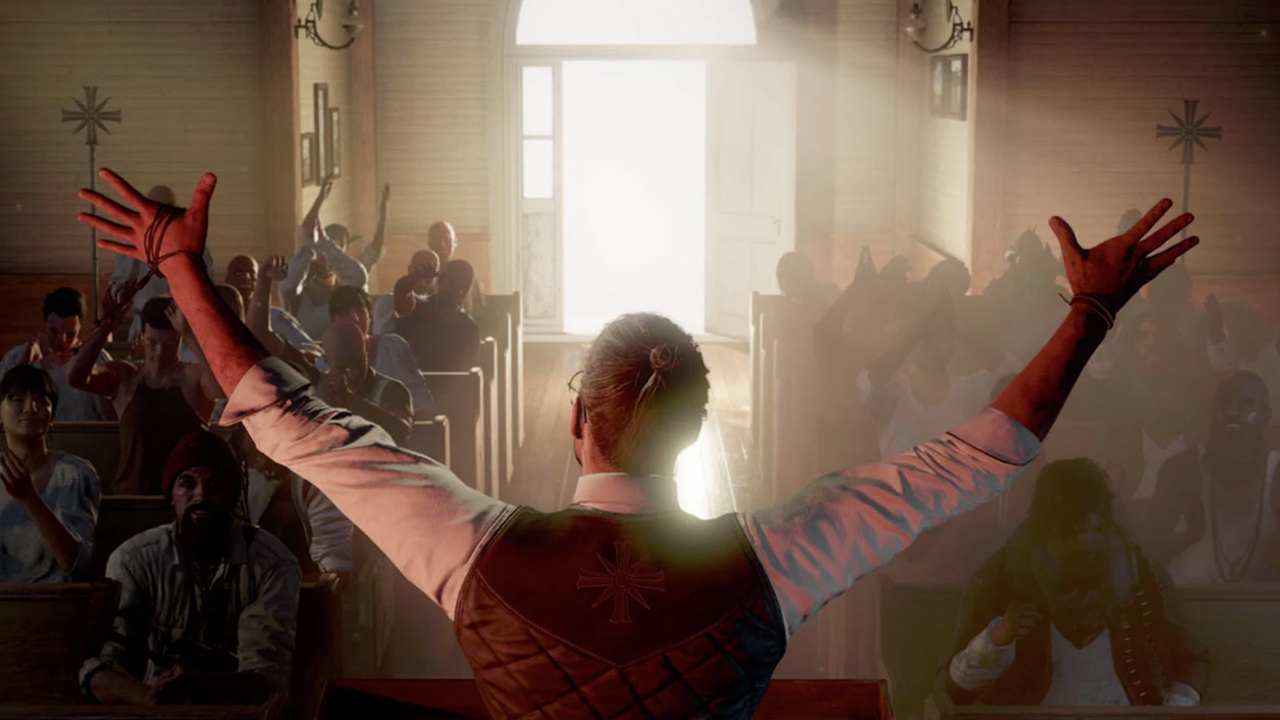
Ubisoft has been talking about a desire to create games that do ‘not give finite experiences’ i.e. for the game to keep going after you’ve finished it, with unlimited gameplay. “We build a strong nemesis, and the goal of the game is to kill him or free the country, we've done that a few times in our games”, explains Ubisoft’s Executive Vice President of Creative, Lionel Raynaud, whose job title is an exercise in testing finite boundaries. “But when you succeed, you have to leave the game, because there is nothing else to do. So the goal was to break this, and say that you will be the hero of a region or population many times, not just once. And if you get rid of a dictator or an oppressor, something else is going to happen in the world, and you will have a new goal”. I appreciate that life isn’t about riding into the sunset like My Darling Clementine, but I’d rather bow out like Thelma and Louise than live in a world where the clifftop never ends.
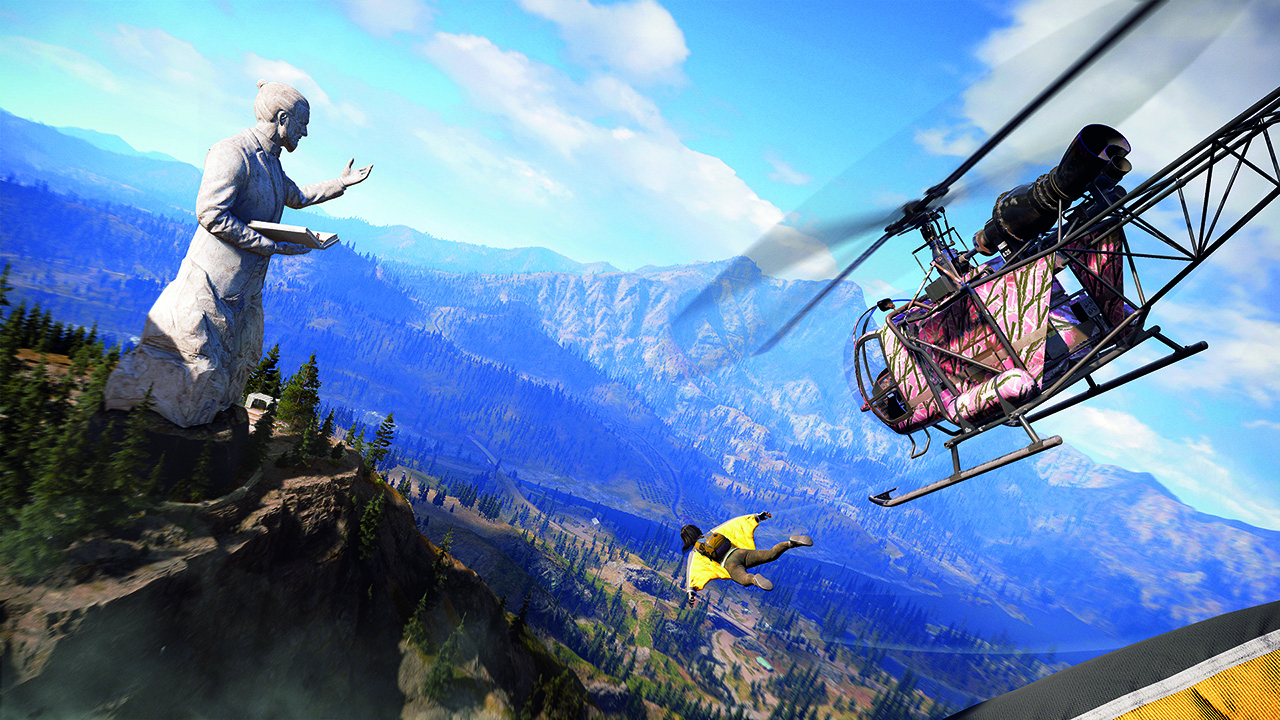
Ubisoft might, of course, be calling our bluff after Far Cry 5’s final mission was described as ‘the worst ending in gaming history’ by Rock Paper Shotgun’s John Walker. No spoilers, but the game’s attempt to provide endless gameplay – allowing you to mop up side missions and wallow in the accrual of stuff – in the aftermath of that ending is a violation of logic that even The Father’s cult followers would fail to accept. The irony is that before all that, I played Far Cry 5 for about 40 hours while not even being sure I was enjoying myself, in the hope it would all be redeemed by the conclusion. Long story, short: Far Cry 5 is impeccably constructed, but so keen to avoid making a statement it reads like a passive aggressive subtweet of US politics.
"Destiny is, arguably, the most influential game of this generation in terms of recognising how people’s lifestyles and desires have changed."
But I digress, because the likelier reason for a move to ‘infinite games’ is a sharper critique of contemporary America than Far Cry 5’s toothless take on the Trump heartlands: the almighty dollar. “Sales data of video games suggest that the promise of unlimited gameplay results in higher sales than a finite, story based game, even if the perceived quality of that finite game is higher”, notes NPD analyst Matt Piscatella. In a world with infinite time I’d support this with compelling revenue data, but you’ve only got to look at the success of GTA Online, Destiny or Fortnite as proof that ‘games as a service’ feels like the pre-eminent development model.
Destiny is, arguably, the most influential game of this generation in terms of recognising how people’s lifestyles and desires have changed. It’s quite possible to play Destiny for an hour late at night, a quick burst in the morning, and feel like you’re making progress via various XP trees, without the burden of having to remember where you were up to in the story, or where you left the last piece of a complex puzzle. It’s a theoretically infinite, in-the-moment, pleasure; a sedative to a modern world of remote working, endless emails, social media chatter, mounting injustice, and a sense of global political incoherence. That, and big guns that feel great. Naturally.
The Death of Single Player Games: Episode IX
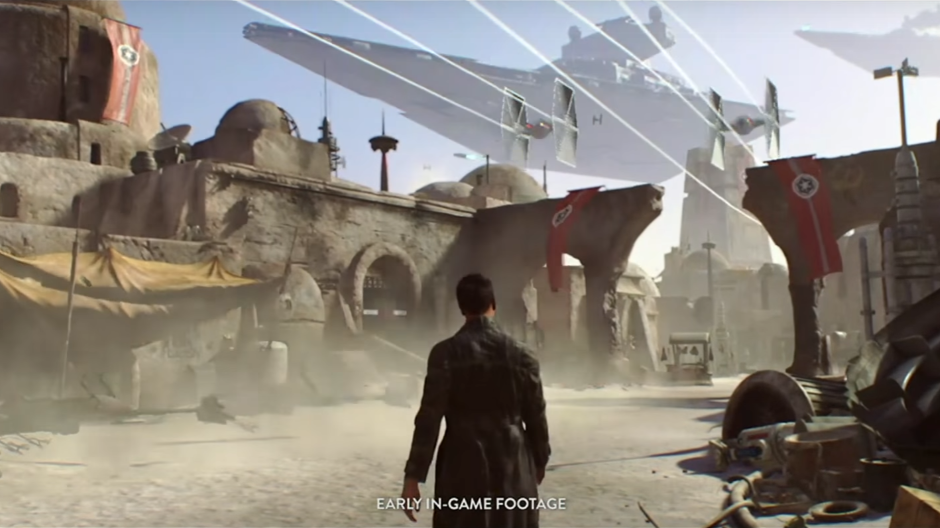
Mega publisher EA has moved away from mega-budget AAA games that don’t offer a satisfying long-tail service model. Visceral’s single-player Star Wars game was famously cancelled, although EA’s executive vice president Patrick Söderlund denies this was due to the ‘death of single-player games’ or similar narratives, hinting at wider issues around quality and the coherence of that game’s vision. EA has also taken relentless heat for the proposed loot boxes in Star Wars Battlefront 2, which never really came to fruition, and despite using the sequel to add a much-requested story mode. For all the arguments about gambling, value and being ‘pro consumer’, there’s a simpler truth that games have to make money to exist. A drive to a longer tail model is sometimes less about greed, than a necessity for existence.
“Given the decline in sales of the average finite, story based game when compared to 10-15 years ago, combined with the increase in development costs, and now the added opportunity cost involved, it's no surprise at all to see the move towards games offering unlimited gameplay”, notes NPD analyst Matt Piscatella. “The majority of those that purchase a finite, story based game are highly likely to never finish it.”
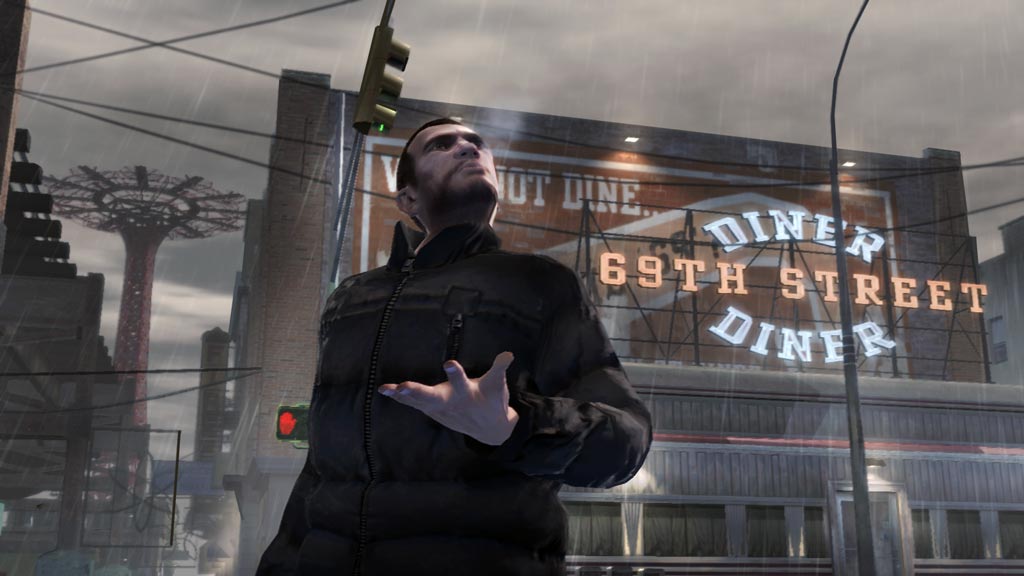
This takes me back to a conversation with Rockstar employees back in 2009, who had expressed shock at the number of people who had finished the single player story in Grand Theft Auto 4. I can’t recall exact figures, but something like only 10% of those who bought the game got further than a few hours into the story, and only a fraction of those saw the ending – perhaps only 1% to 2%. Rockstar had, clearly, poured its heart into the narrative of that game, which marked a new determination to explore mature themes such as immigration, the consequences of player choice, and ‘grey area’ morality between traditional good and evil stereotypes. In fact, you could argue that the game’s most impactful mission, That Special Someone, only worked because of the 20-30 hours of play you’d invested to get there – with the game questioning if protagonist Niko had become the enemy he claimed to despise in his quest for revenge.
Rockstar didn’t entirely back away from single-player experiences, but Grand Theft Auto 5 did introduce multiple characters, partly as a way to make it easier to leap around the map and to appeal to players who, say, just wanted to blow things up (hence the existence of psychopath Trevor). Five years on from GTA5’s release, it’s easy to forget that the game even had a large story campaign, such is the success of GTA Online – which has made more money for parent company Take Two than sales of the game itself. This is even more staggering, since GTA5 has sold over 85 million copies, and made more money than any movie, book or game in history. Rockstar has also placed plans for single-player GTA5 DLC on indefinite hiatus, while GTA Online was believed to have made $1.09 billion in revenues by mid 2017.
Weekly digests, tales from the communities you love, and more
Games can do more than live in the moment
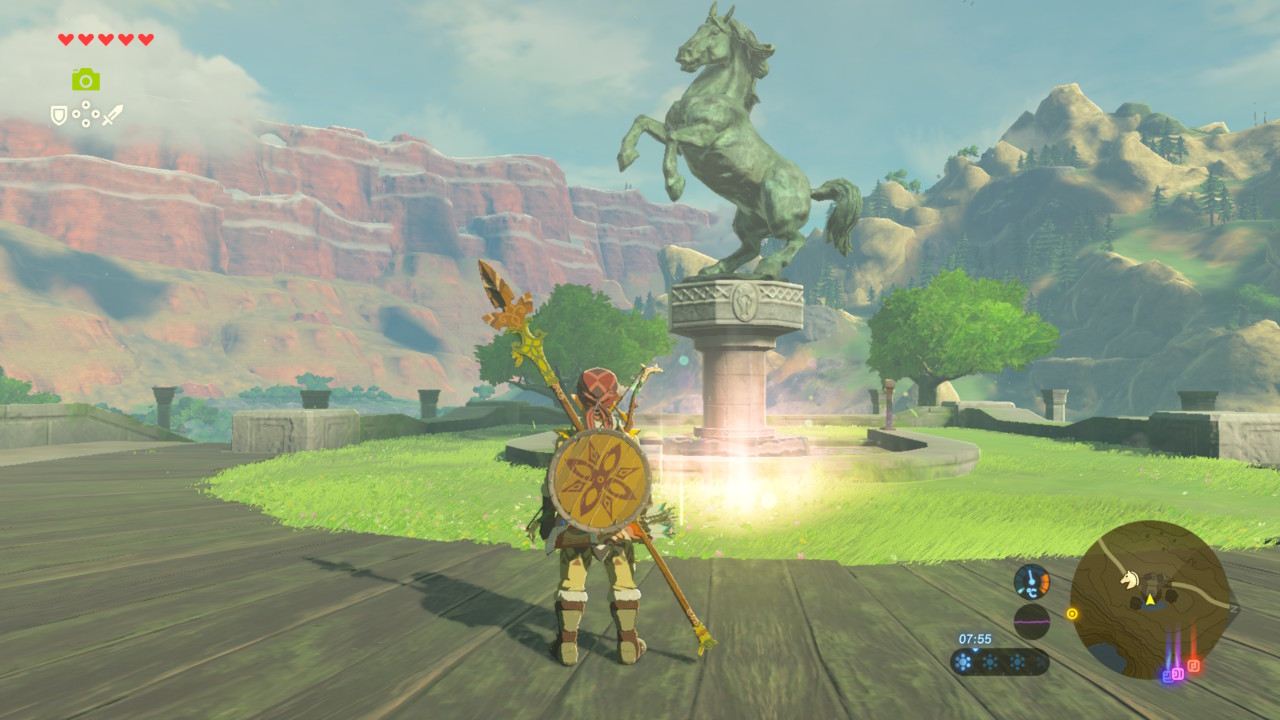
In a world where every game is almost bound by financial imperative to offer endless replay value, publishers and developers might be better served to start thinking less about how their creative whims can wrap around business models, and more about how to craft compelling tales within those constraints. The Legend of Zelda: The Breath of the Wild offers a definitive narrative conclusion, after a ‘mere’ 50-70 hours play time, but has also found ways to offer DLC content that broadens its universe, without breaking its timeline. The fear is that more AAA games feel liberated to abandon context entirely, as some predict of the upcoming, campaign-free, Call of Duty: Black Ops 4.
That way, all games become the equivalent of a hot bath, gym session, or a few hours in the bar. They exist only in the moment, primarily through their systems, rather than daring to tell stories, pose questions, or challenge our assumptions about ourselves or the world. You know, like the endings of BioShock, Portal, Mass Effect 2, Metal Gear, and all those other games that hold a special place in our collective affection. Finite experiences that have something very definite to say, that still burn bright in our memory. Sure, indie games can fulfil that role to a lower-fidelity extent, but they shouldn’t be the only games picking up that responsibility. AAA budgets are a necessity for those of us who crave games that look like a digital recreation of the Sistine Chapel – yet require the lifetime resources afforded to several Sagrada Família cathedrals.
"For creators and publishers, it takes a larger scale act of economic bravery - a possible career-derailing punt – to invest in an experience of true, finite intent"
There are spectacular exceptions to this increasing ‘scale over focus’ thinking, largely funded by Sony, such as Horizon: Zero Dawn, God of War and The Last of Us: Part 2. “The exceptions are for highly regarded games like God of War, which can now be considered on outlier in both sales and consumer behavior”, notes Piscatella. “Yes, finite story based games can still sell well, but this is only likely if the game hits a 9+, and this is extremely difficult to do, and risky. Games offering unlimited gameplay can sell far better at a 7 or 8 review score range than linear titles at those same rankings. The games industry provides, for the most part, new content which is a trailing reflection of consumer purchasing behavior.”
This touches on the most optimistic conclusion: that if we buy single-player, finite, games, they’ll continue to exist. But that only holds true if we actually pay for, say, What Remains of Edith Finch rather than nodding in acknowledgement of its bravery, while hoping to pick it up for free on PS Plus in two years time or watching YouTube playthroughs. For creators and publishers, it takes a larger scale act of economic bravery - a possible career-derailing punt – to invest in an experience of true, finite intent when all financial logic, optimisation and risk models suggest the opposite. To an extent, that’s what Sony has done with Hideo Kojima’s Death Stranding, bankrolling a high budget creative muse on a project which is far from a guaranteed financial return, and appears to have no definitive release date.
Stranding room only for big budget stories

In fact, according to current fan theories, it’s entirely possible that Death Stranding is about just that: a commentary on the nature of video games, and the power of their players to shape their existence. The ‘death stranding’ of the title might be what happens when we keep returning for just ‘one more go’ with no desire for conclusion, or to face hard truths. To save you an infinite scroll of Kojima theories, what I’m saying is that I don’t want video games to be simply adequate, or endless. I don’t want them to exist for little more reason than to delight or enrage in the moment, afraid to provide context or narrative.
That sounds a little too much like the most addictive, profoundly unsatisfying, video game that I play every day – my Twitter feed. Don’t blame Ubisoft for wanting to make money, by any means, but do hold it to account for having something to say. The finite resource that no publisher or business model can conquer is time, and I’d love to think that we owe it to ourselves to make a few of those limited moments resonate through the long yards, rather than loll on a conveyor belt of adequacy.
Or, as rabbi Harold S. Kushner puts it, ‘You don’t become happy by pursuing happiness. You become happy by living a life that means something.’ Sure, not everyone will find their truth in a first-person shooter with political undertones, but it definitely doesn’t reside in searching for endless baseball cards in a context-free open-world.
Are you concerned that games are, literally, losing the plot? Let us know below - and you can relive some of the best video-game stories right here
FGS Content Director. Former GamesRadar+ EIC, GTAVoclock host, and PSM3 editor; with - *counts on fingers and toes* - 20 years editorial experience. Loves: spreadsheets, Hideo Kojima and GTA.



